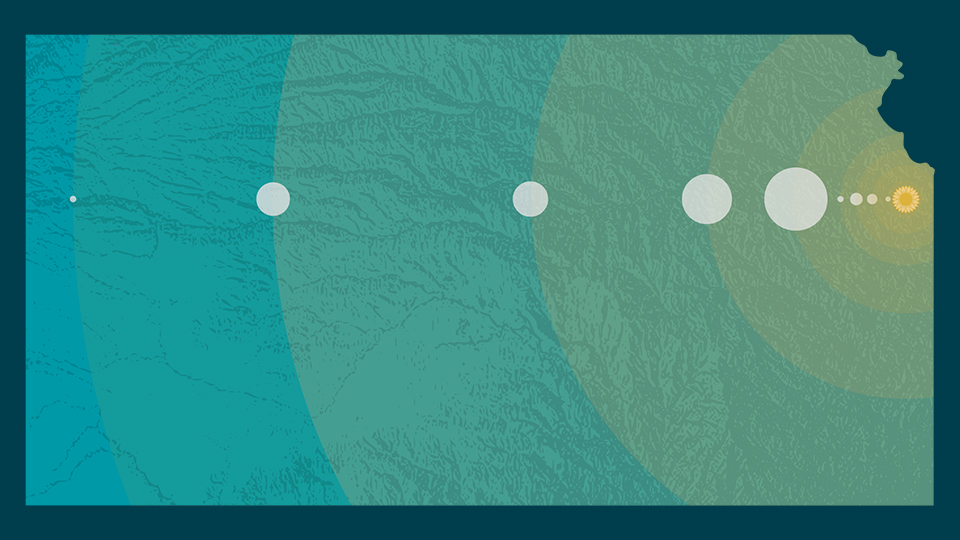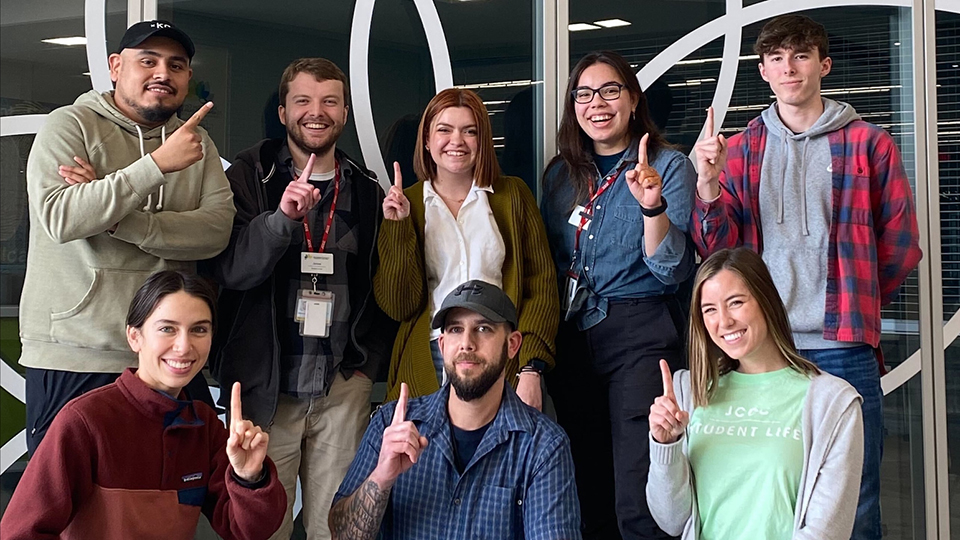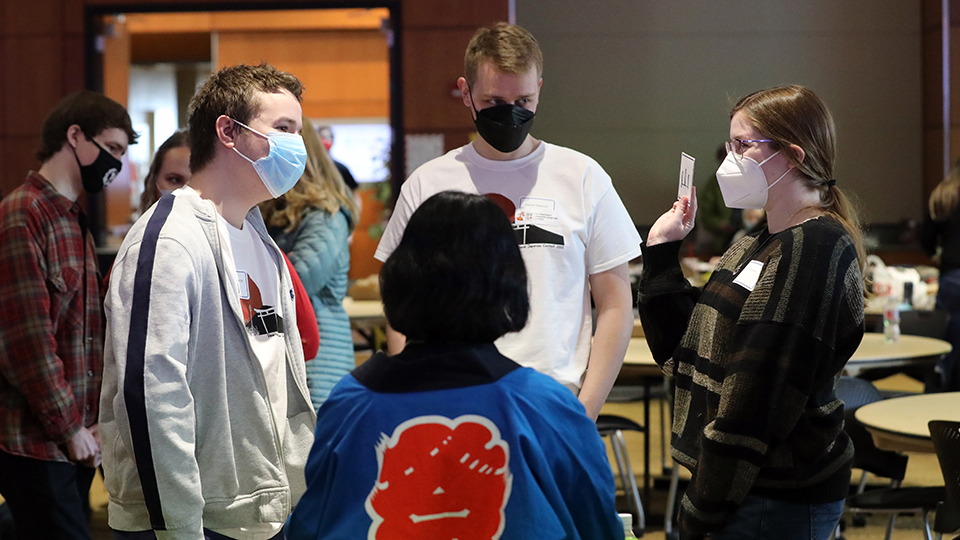March 11, 2021
The Kansas Cosmos project covers the great vastness of the solar system with just a drive across the Sunflower State.
Imagine driving on I-70 across Kansas and having a handheld telescope tell you where you are in comparison to the vastness of the solar system. Wouldn’t it be fascinating to know interesting facts about the objects orbiting roughly 62 miles above you?
Students and faculty from JCCC’s Web Development, Graphic Design and Astronomy programs, along with JCCC’s Honors Program and the Kansas Studies Institute, have created such a tool with the Kansas Cosmos project – a web application that maps the solar system to scale across the state of Kansas.
Students Embodied the Kansas Motto of To the Stars Through Difficulties
“While we faced many challenges, seeing our hard work come to fruition made it all worth it.” — Maci B., JCCC student and project participant
The collaboration and perseverance needed for this project exemplifies the official motto of Kansas: Ad Astra per Aspera, which is Latin for, "to the stars through difficulties."
JCCC students from a variety of disciplines researched, designed and developed the entire web application, all during the COVID-19 pandemic. As JCCC transitioned to virtual learning, students and teachers had to adjust communications for the project, which spanned several semesters.
Reimaging our solar system involved 15 students, five faculty members and was part of the Kansas Studies Institute's project-learning courses. The Kansas Studies Institute at JCCC promotes research and teaching on the culture, history, economics and natural environment of Kansas.
“Unlike many of the other courses I teach, this course transitioned relatively easily to a Zoom-only environment. This actually aided in collaboration because we could use breakout rooms on Zoom instead of trying to separate out in a classroom,” said Tai Edwards, Professor of History, Director of the Kansas Studies Institute and project leader.
Despite moving to virtual classes, students still found ways to collaborate and connect.
“The familiar and friendly faces I have come to know over my computer screen have been key to the success of this project. While we faced many challenges, seeing our hard work come to fruition made it all worth it,” said Maci Branch, JCCC student and project participant.
The Solar System Takes on the Sunflower State
Modeling the solar system at an accurate scale required an area as large as the state of Kansas.
With the Kansas Cosmos project, the solar system is scaled so planets are represented by real-life objects located across the state. For example, Pluto, the outermost sentinel of the solar system, is placed in Goodland, Kansas, bordering Colorado. On the opposite side of the state, JCCC in Overland Park is the location of the Sun. Pluto is roughly compared to the size of a basketball, while the Sun is the size of JCCC’s baseball field.
The size and distance of each object and location give the full effect of just how immense space is. The Cosmosphere space museum in Hutchinson aligns with Uranus’ orbit and has a to-scale diameter approximately the size of a farmer’s windmill. Jupiter fits inside the Kansas State Capitol dome at its orbit in Topeka.
“Our model, built to scale, conveys the idea that our universe is vast, and we are tiny. The lesson is not that we are insignificant, but that tiny things are sometimes the most significant,” mused Branch.
Explore Kansas and Beyond
While exploring the celestial highways of our solar system, users can also learn about some human “Kansas Stars” who have contributed to space science and exploration. This includes University of Kansas alumnus Clyde Tombaugh, who is credited with discovering Pluto in 1930.
This interactive application also provides information on points of interest along each planetary orbit, including Washburn University’s Crane Observatory in Topeka and the Prairie Dog State Park in Norton.
Students are frequently testing the Kansas Cosmos project to ensure data remains accurate. Check out the Kansas Cosmos web application to experience a relatable model of the solar system and learn more about our beautiful state along the way!
Pursue Your Inner Passion
JCCC offers a variety of programs and opportunities that align with all types of interests and passions. Expand your horizons by studying astronomy– it’s more than peering through a telescope. Or put your technical talents to work in a graphic design or web development course and build an application like the Kansas Cosmos project!
We offer both online and on-campus classes, featuring lectures and labs in state-of-the-art facilities comparable to those at many four-year schools. Learn more about each credit program and apply today!





